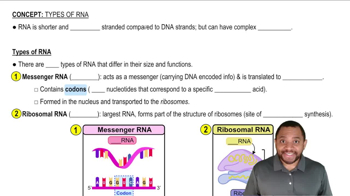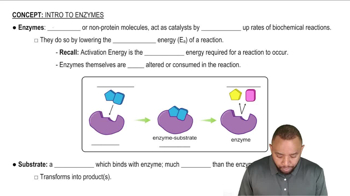Textbook Question
What general kinds of reactions do the following types of enzymes catalyze?
b. Decarboxylases
1502
views
 Verified step by step guidance
Verified step by step guidance Verified video answer for a similar problem:
Verified video answer for a similar problem:



 :39m
:39mMaster Common Naming Concept 1 with a bite sized video explanation from Jules
Start learning